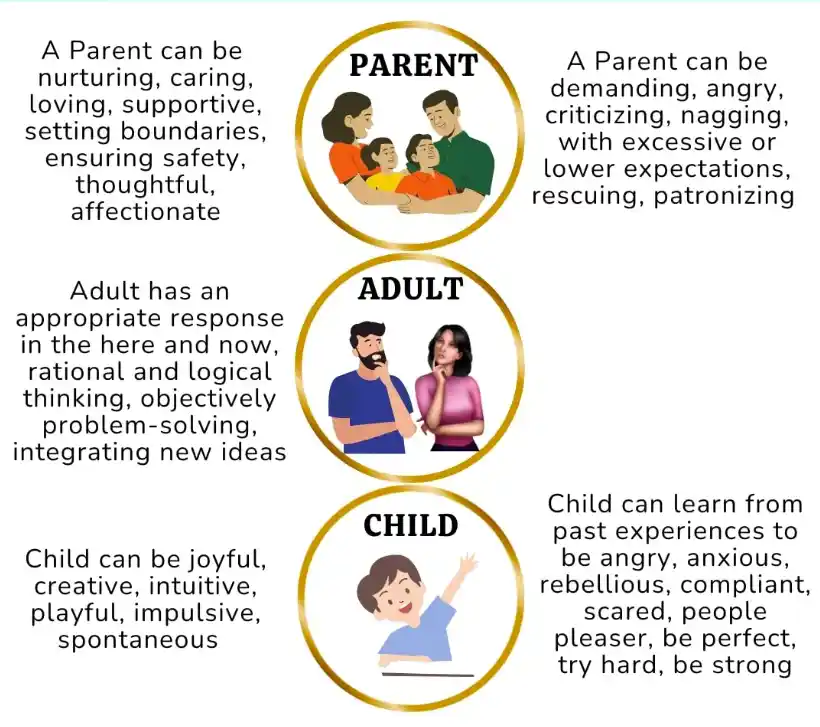Improving Relationships with Transactional Analysis: The Parent-Adult-Child Model

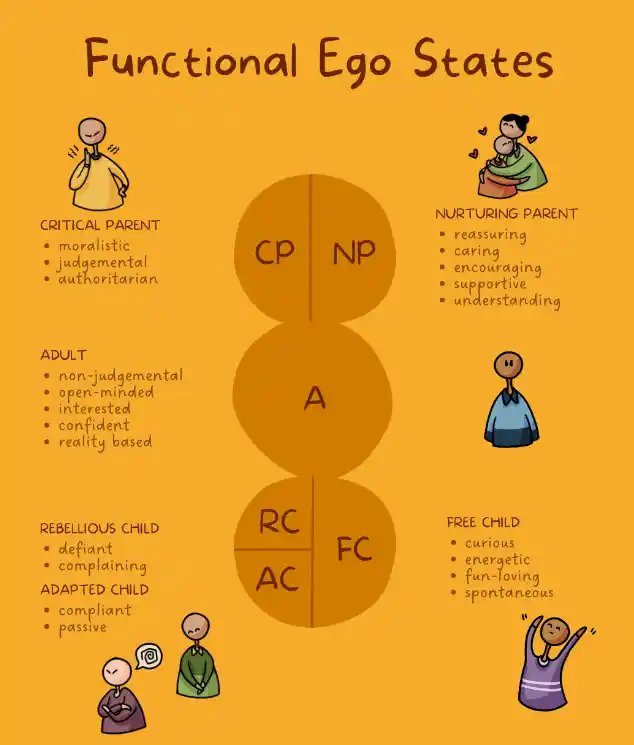
In the pursuit of nurturing healthier and more fulfilling relationships, Transactional Analysis (TA) serves as an invaluable tool. Transactional Analysis is a psychoanalytic theory and method of therapy developed by Eric Berne during the 1950s. Transactions refer to the communication exchanges between people. Rooted in the concept of ego states—Parent, Adult and Child—TA offers insights into human interactions and communication patterns. By understanding and applying these principles in personal relationships, individuals can foster greater empathy, improve communication and cultivate stronger connections with loved ones. Let’s explore how the Parent-Adult-Child model can be utilised to enhance relationships in private life.
Understanding the Parent-Adult-Child model:
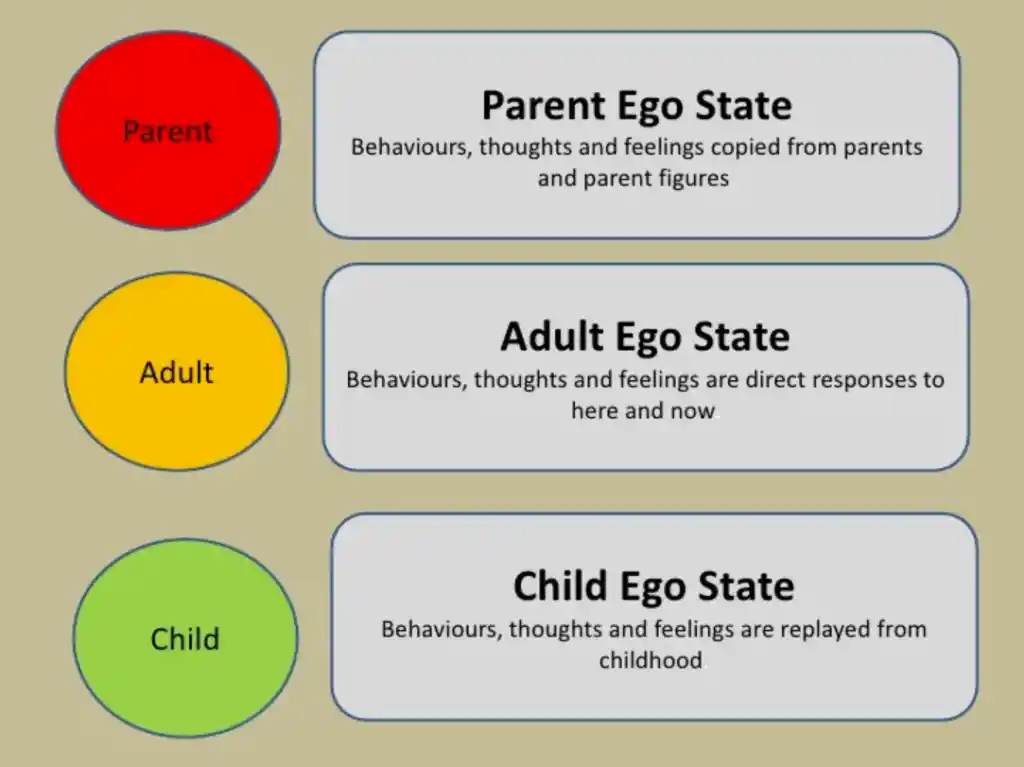
- Parent ego state: The Parent ego state is influenced by learned behaviours, beliefs and attitudes acquired from authority figures such as parents, teachers or caregivers. It can manifest as nurturing and supportive (Nurturing Parent) or critical and controlling (Critical Parent). In relationships, interactions from the Parent ego state may involve giving advice, providing guidance or expressing judgement based on past experiences or societal norms.
Example: A partner offering advice to their significant other based on their upbringing or cultural values, assuming a nurturing or critical stance. - Adult ego state: The Adult ego state represents rational thinking, objectivity and problem-solving. It operates in the present moment, analysing information, making decisions and responding to situations based on facts and logic rather than emotions or past experiences. Interactions from the Adult ego state are characterised by open-mindedness, curiosity and a willingness to explore new perspectives.
Example: Engaging in a constructive conversation with a partner to address a conflict, focusing on finding solutions and understanding each other´s viewpoints without judgement. - Child ego state: The Child ego state encompasses emotions, memories and experiences from childhood. It can be divided into the Free Child, which expresses spontaneity, creativity and playfulness, and the Adapted Child, which adheres to learned patterns of behaviour and emotions. Interactions from the Child ego state may involve expressing joy, excitement, fear or vulnerability.
Example: Revisiting childhood memories or engaging in playful activities with a partner to foster emotional connection and spontaneity in the relationship.
Applying Transactional Analysis in relationships:
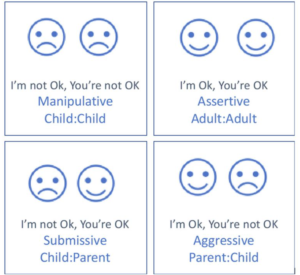
- Recognising ego states: Start by identifying your own and your partner’s ego states in various situations. Notice patterns of behaviour, communication styles and emotional responses that correspond to the Parent, Adult and Child ego states. Increased awareness allows for more conscious and intentional interactions.
- Promoting Adult-Adult Communication: Strive for communication from the Adult ego state, where both partners engage in open, honest and respectful dialogue. Focus on active listening, empathetic understanding and collaborative problem-solving. Avoid slipping into the Parent-Child dynamic, where one partner assumes a parental or childlike role, which can lead to conflict and resentment.
- Navigating Parent-Child interactions: Parent or Child ego states emerge in interactions, examine underlying dynamics and their impact on the relationship. Practise setting healthy boundaries, expressing needs assertively and addressing any unhelpful patterns of communication or behaviour. Aim for a balance of nurturing support and autonomy in the relationship.
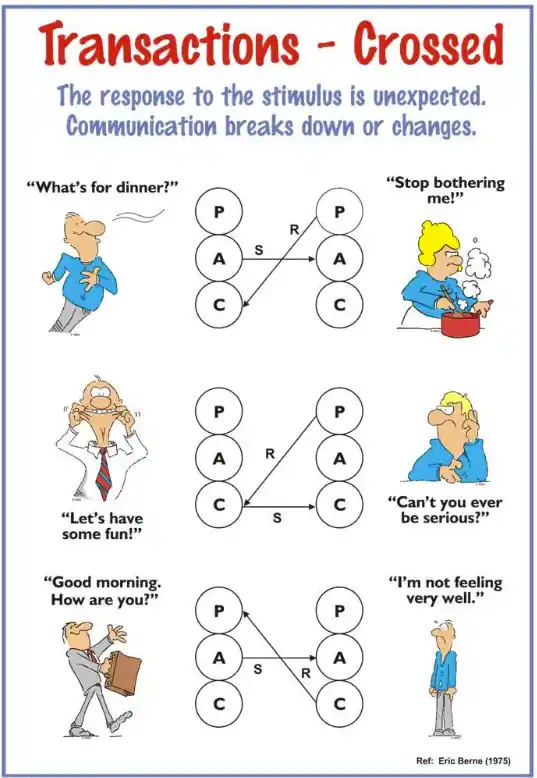
The Transactional analysis provides a framework for understanding and improving relationships through the lens of the Parent-Adult-Child model. By cultivating awareness of ego states, fostering Adult-Adult communication, and navigating Parent-Child interactions, individuals can enhance their connections with partners, family members and friends. Through conscious effort and practice, Transactional Analysis empowers individuals to foster healthier, more fulfilling relationships grounded in mutual respect, empathy and understanding.
